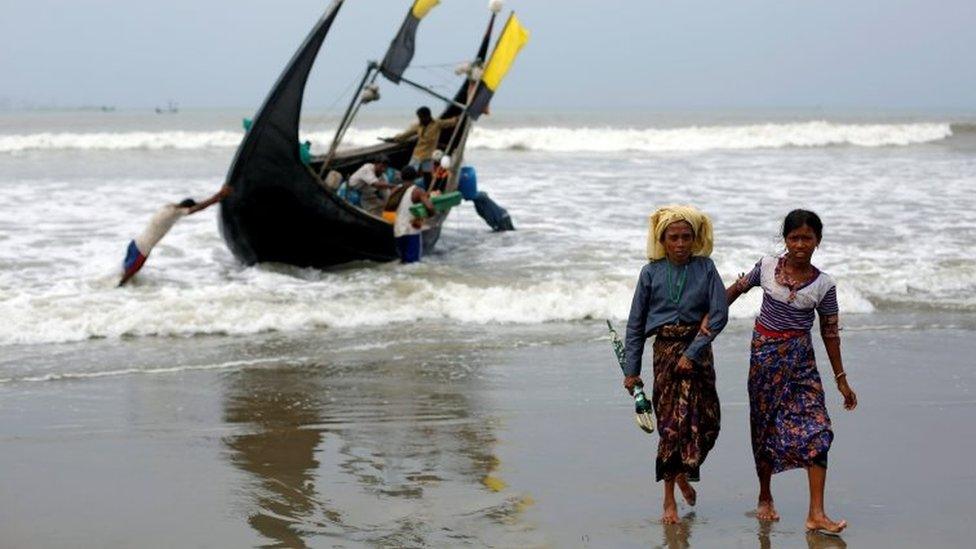Pope in Myanmar: Francis starts trip with army talks
- Published
Myanmar welcomes Pope Francis
Pope Francis has met Myanmar's military chief, as he begins the first papal visit to a country widely accused of ethnic cleansing of Rohingya Muslims.
Gen Min Aung Hlaing denied any "religious discrimination" in a military campaign in Rakhine state.
Officials in the Buddhist-majority country are watching closely to see how the Pope responds to the crisis.
He has been urged by governments and rights groups to pressure them over their treatment of the Rohingyas.
More than 600,000 Rohingya have fled Myanmar (also called Burma) for neighbouring Bangladesh since August when deadly attacks on police posts by Rohingya militants prompted a military crackdown in Rakhine state.
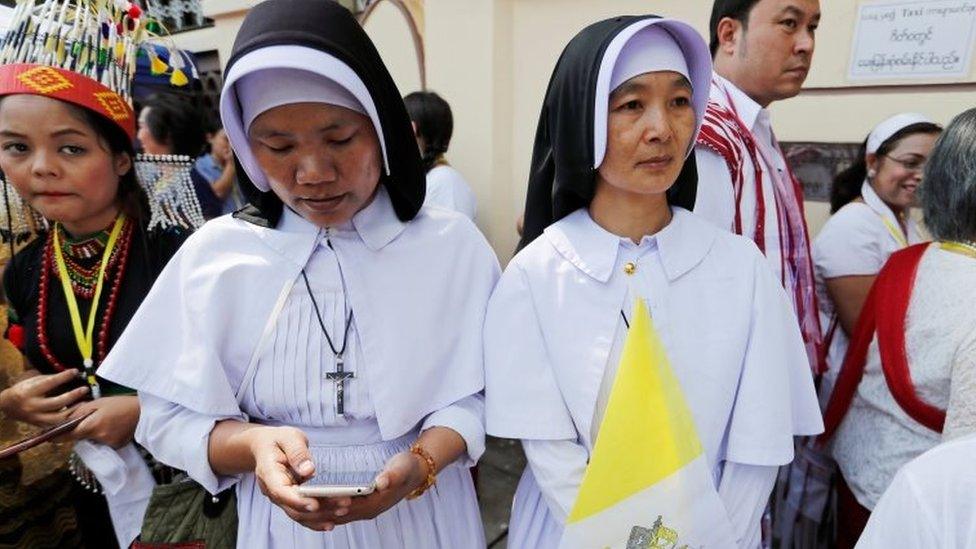
Thousands gathered in Yangon for the first papal trip to the Buddhist-majority country
As part of his visit to the region, the Pope is also due to meet de facto leader Aung San Suu Kyi.
After Myanmar, he will move on to Bangladesh to meet a small group of Rohingya refugees in a symbolic gesture. The 80-year-old pontiff has become known for his moderate views and willingness to denounce global injustice.
The Pope met military chief Gen Min Aung Hlaing within hours of arriving in Myanmar.
Gen Hlaing said he had told the pontiff that "there's no religious discrimination in Myanmar and there's the freedom of religion", according to his latest Facebook post. It is not known how the Pope responded.
He has previously used the term "our Rohingya brothers and sisters" while denouncing the violence, but Myanmar's sole Catholic cardinal has asked him to avoid using it on the trip, to avoid inflaming local feelings.
Vatican spokesman Greg Burke told reporters on Monday that Pope Francis was taking advice he had been given about using the term "Rohingya" seriously, adding: "We will find out together during the trip... it is not a forbidden word."
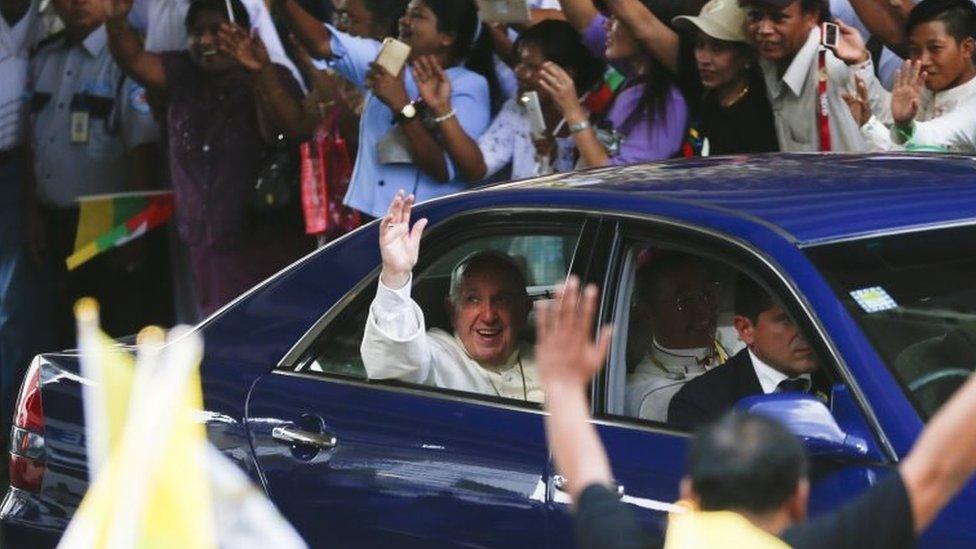
His motorcade was welcomed by hundreds as it swept through central Yangon
Myanmar officials do not use the term, instead labelling Rohingya as "Bengalis", and say they migrated illegally from Bangladesh so should not be listed as one of the country's ethnic groups. Bangladesh denies they are its citizens.
Myanmar says the crackdown in Rakhine is to root out violent insurgents there, but the UN has described the violence as a "textbook example of ethnic cleansing" - a sentiment echoed by international critics.
Last week Myanmar and Bangladesh signed a deal to return hundreds of thousands who have fled across the border, but aid agencies have raised concerns about any forcible return.
Watch: Who are the Rohingya?
- Published23 November 2017
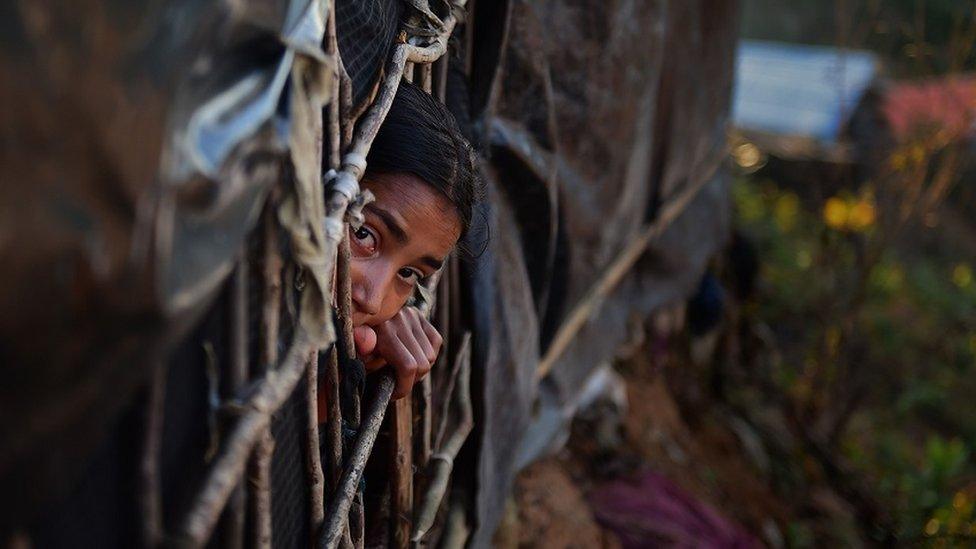
- Published22 November 2017
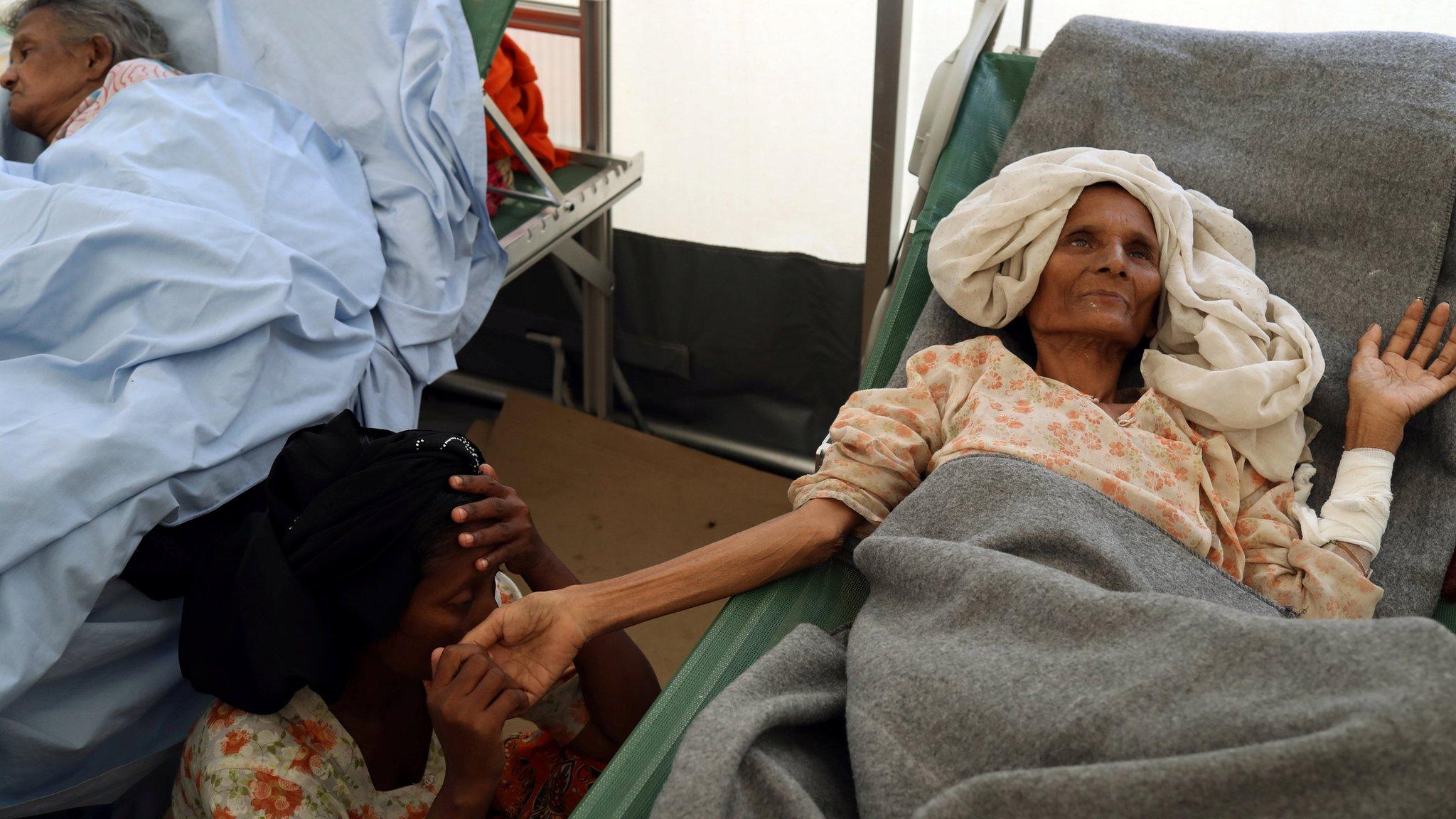
- Published7 September 2017
